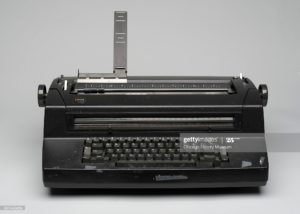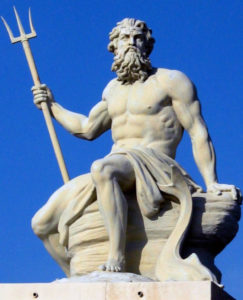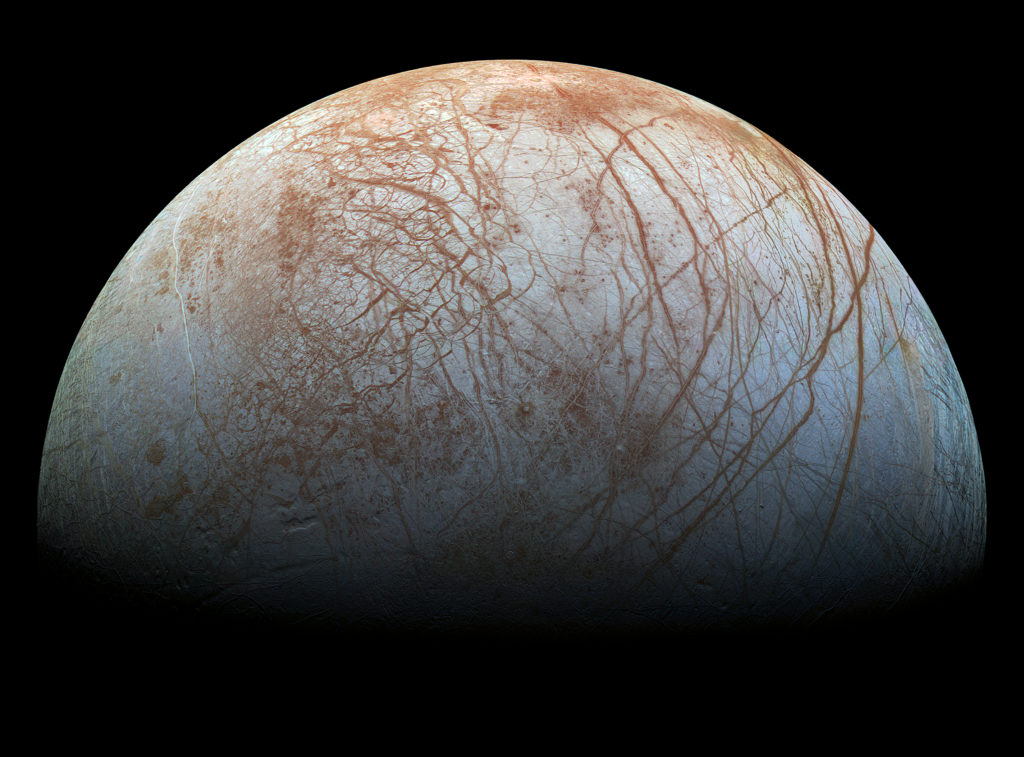
Continue reading “New Worlds : How to build a ‘perfect’ language”

Continue reading “New Worlds : How to build a ‘perfect’ language”

A number of scholars of post-humanity (such as Hayles and Wolfe) have argued that transhumanism is an unduly optimistic extension of humanism. I can’t agree – not only is it not optimistic, it is not a humanism. Transhumanism is filled with the anxiety of extinction. It also is enthused enough about non-human flourishing that it marks a departure from humanism (besides: is anything more optimistic than humanism in its enlightenment mode?). Transhumanism’s posthumanist stance is the continuation of enlightenment technoscience in so far as it centralizes human technology, even if it projects the technoscientific breakdown of humanity. However, insofar as its ideas and projected technologies propose an almost panpsychic collapse of mind and matter, it pushes us beyond reductive materialist, secular and humanist arrangements, and points to some interesting new openings.
One way to go about thinking through all this is to consider, as Bialecki and Lowrie have suggested, the figure of anthropos. The human is, as Foucault pointed out, an image built through a series of disciplines (biology, economics, linguistics) that came together in the space of non-transcendental knowledge to capture human activity (life, labor, language). The figure under which that image has been organized is anthropos, combining modern science and humanism in an often fraught relationship.
Continue reading “Transhumanism, Tragic Humanism, and The View From Nowhere”
Underwater water worlds are no place for vegetarians Sorry folks stay at home no place for vegetarian astronauts because outside planet earth most habitable worlds are Underwater planets without Sunlight so… See ya… (fishetarianism because it is universal and cosmic)


Last week brought the news that Enceladus likely has a warm salty ocean, and that liquid water lurks beneath the surface of Ganymede. These findings are continuing to chip away at the once-held belief that the solar system was dry and barren, bereft of water.
THE HUNT FOR EXTRATERRESTRIAL LIFE HAS TURNED TO OUR OWN COSMIC BACKYARD
It seems there are few places in the solar systems without some amount of water, whether liquid or solid. There’s even a small amount of water vapor on Venus, something like 20 parts-per-million. And every time a source of liquid water is found or suggested, it brings up the chances of life on that world because of the way water acts as a solvent – facilitating the metabolic processes at the most basic level of life. That’s why the hunt for extraterrestrial life (quite doubtfully of an intelligent sort, though we’ve found some quite remarkable octopuses on Earth) has turned from distant solar systems to our own cosmic backyard.
Here’s the breakdown of all the water we know about in the solar system, and what form it comes in.
Oceans
All But Confirmed:

Europa
Continue reading “New Worlds : 23 Places We’ve Found Water in Our Solar System”
ಯುರೋಪಿಯನ್ ಯೂನಿಯನ್
ನವೆಂಬರ್ 1, 1993 ರಂದು ಮ್ಯಾಸ್ಟ್ರಿಚ್ ಒಪ್ಪಂದದಿಂದ ಯುರೋಪಿಯನ್ ಯೂನಿಯನ್ (ಇಯು) ಅನ್ನು ರಚಿಸಲಾಯಿತು. ಇದು ಯುರೋಪಿಯನ್ ರಾಷ್ಟ್ರಗಳ ನಡುವೆ ರಾಜಕೀಯ ಮತ್ತು ಆರ್ಥಿಕ ಒಕ್ಕೂಟವಾಗಿದ್ದು, ಸದಸ್ಯರ ಆರ್ಥಿಕತೆಗಳು, ಸಮಾಜಗಳು, ಕಾನೂನುಗಳು ಮತ್ತು ಕೆಲವು ಮಟ್ಟಿಗೆ ಭದ್ರತೆಗೆ ಸಂಬಂಧಿಸಿದಂತೆ ತನ್ನದೇ ಆದ ನೀತಿಗಳನ್ನು ಮಾಡುತ್ತದೆ. ಕೆಲವು ಜನರಿಗೆ, ಇಯು ಹಣವನ್ನು ಹರಿದು ಮತ್ತು ಸಾರ್ವಭೌಮ ರಾಜ್ಯಗಳ ಅಧಿಕಾರವನ್ನು ಸರಿದೂಗಿಸುವ ಒಂದು ಅತಿರೇಕದ ಆಡಳಿತಶಾಹಿಯಾಗಿದೆ. ಇತರರಿಗೆ, ಸಣ್ಣ ರಾಷ್ಟ್ರಗಳು ಎದುರಿಸುತ್ತಿರುವ ಸವಾಲುಗಳನ್ನು ಎದುರಿಸಲು ಇಯು ಅತ್ಯುತ್ತಮ ಮಾರ್ಗವಾಗಿದೆ – ಉದಾಹರಣೆಗೆ ಆರ್ಥಿಕ ಬೆಳವಣಿಗೆ ಅಥವಾ ದೊಡ್ಡ ದೇಶಗಳೊಂದಿಗೆ ಮಾತುಕತೆ – ಮತ್ತು ಸಾಧಿಸಲು ಕೆಲವು ಸಾರ್ವಭೌಮತ್ವವನ್ನು ಶರಣಾಗಿಸುವುದು.
ಅನೇಕ ವರ್ಷಗಳ ಏಕೀಕರಣದ ಹೊರತಾಗಿಯೂ, ವಿರೋಧ ಬಲವಾಗಿ ಉಳಿದಿದೆ, ಆದರೆ ರಾಜ್ಯಗಳು ಒಕ್ಕೂಟವನ್ನು ಸೃಷ್ಟಿಸಲು, ಕೆಲವೊಮ್ಮೆ ಪ್ರಾಯೋಗಿಕವಾಗಿ ವರ್ತಿಸುತ್ತವೆ.
ಇಯು ಮೂಲಗಳು
ಮಾಸ್ಟ್ರಿಕ್ಟ್ ಒಪ್ಪಂದದಿಂದ ಒಂದೇ ಬಾರಿಗೆ ಯುರೋಪ್ ಒಕ್ಕೂಟವು ರಚನೆಯಾಗಲಿಲ್ಲ, ಆದರೆ 1945 ರಿಂದಲೂ ಕ್ರಮೇಣ ಏಕೀಕರಣದ ಪರಿಣಾಮವಾಗಿ, ಒಂದು ಹಂತದ ಒಕ್ಕೂಟವು ಕೆಲಸ ಮಾಡಲು ಕಂಡುಬಂದಾಗ ವಿಕಸನ, ಮುಂದಿನ ಹಂತಕ್ಕೆ ವಿಶ್ವಾಸ ಮತ್ತು ಪ್ರಚೋದನೆಯನ್ನು ನೀಡುತ್ತದೆ. ಈ ರೀತಿಯಾಗಿ, ಇಯು ಸದಸ್ಯ ರಾಷ್ಟ್ರಗಳ ಬೇಡಿಕೆಗಳಿಂದ ರೂಪುಗೊಂಡಿದೆ ಎಂದು ಹೇಳಬಹುದು.
ಎರಡನೇ ಜಾಗತಿಕ ಯುದ್ಧದ ಅಂತ್ಯದ ವೇಳೆಗೆ ಯೂರೋಪ್ ಕಮ್ಯುನಿಸ್ಟ್, ಸೋವಿಯೆತ್-ಪ್ರಾಬಲ್ಯದ, ಪೂರ್ವದ ಬ್ಲಾಕ್, ಮತ್ತು ಹೆಚ್ಚಾಗಿ ಪ್ರಜಾಪ್ರಭುತ್ವದ ಪಶ್ಚಿಮ ರಾಷ್ಟ್ರಗಳ ನಡುವೆ ವಿಂಗಡಿಸಲ್ಪಟ್ಟಿತು. ಮರುನಿರ್ಮಾಣ ಜರ್ಮನಿಯು ತೆಗೆದುಕೊಳ್ಳುವ ಯಾವ ದಿಕ್ಕಿನಲ್ಲಿಯೂ ಮತ್ತು ಫೆಡರಲ್ ಯುರೋಪಿಯನ್ ಒಕ್ಕೂಟದ ಪಶ್ಚಿಮ ಆಲೋಚನೆಗಳು ಮತ್ತೆ ಜರ್ಮನಿಯೊಂದಿಗೆ ಪ್ಯಾನ್-ಯುರೋಪಿಯನ್ ಪ್ರಜಾಸತ್ತಾತ್ಮಕ ಸಂಸ್ಥೆಗಳಿಗೆ ಅಂಟಿಕೊಳ್ಳಬೇಕೆಂಬ ಆಶಯದೊಂದಿಗೆ ಅದು ಮತ್ತು ಇನ್ನಿತರ ಇತರ ಐರೋಪ್ಯ ರಾಷ್ಟ್ರಗಳು, ಎರಡೂ ಹೊಸ ಯುದ್ಧವನ್ನು ಪ್ರಾರಂಭಿಸಲು ಸಾಧ್ಯವಾಗುವುದಿಲ್ಲ ಮತ್ತು ಕಮ್ಯುನಿಸ್ಟ್ ಪೂರ್ವದ ವಿಸ್ತರಣೆಯನ್ನು ವಿರೋಧಿಸುತ್ತದೆ.